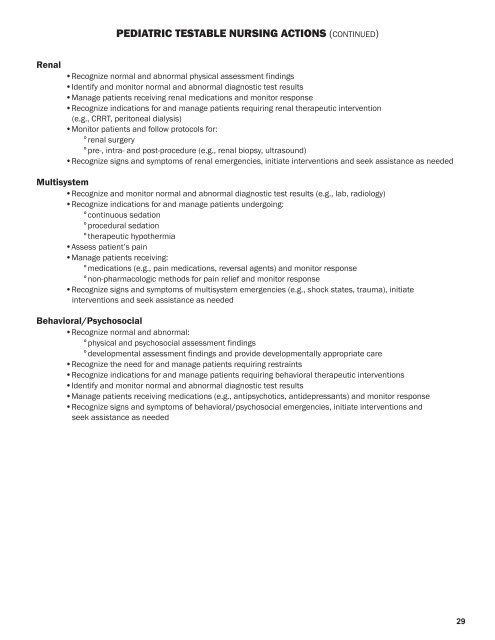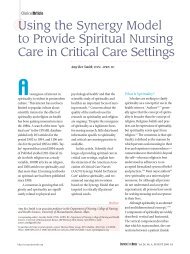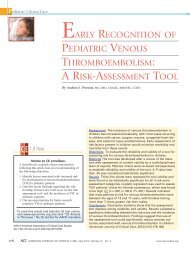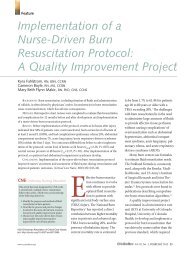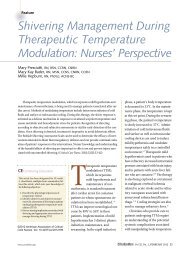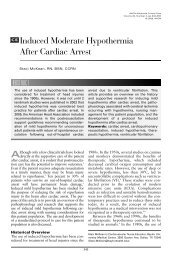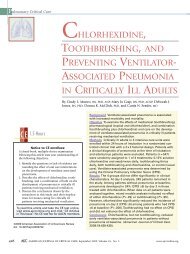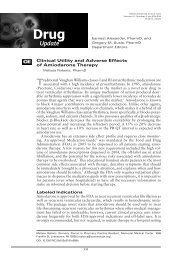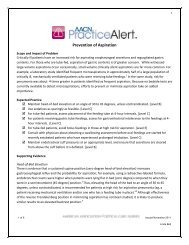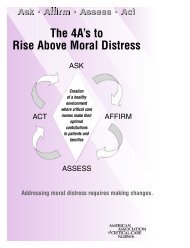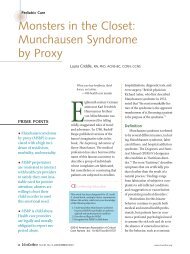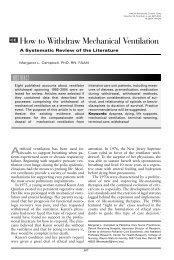CCRN/PCCN Exam Handbook - American Association of Critical ...
CCRN/PCCN Exam Handbook - American Association of Critical ...
CCRN/PCCN Exam Handbook - American Association of Critical ...
Create successful ePaper yourself
Turn your PDF publications into a flip-book with our unique Google optimized e-Paper software.
Renal<br />
PedIAtRIC testABLe nURsIng ACtIons (CONTINueD)<br />
•recognize normal and abnormal physical assessment findings<br />
•Identify and monitor normal and abnormal diagnostic test results<br />
•Manage patients receiving renal medications and monitor response<br />
•recognize indications for and manage patients requiring renal therapeutic intervention<br />
(e.g., CrrT, peritoneal dialysis)<br />
•Monitor patients and follow protocols for:<br />
°renal surgery<br />
°pre-, intra- and post-procedure (e.g., renal biopsy, ultrasound)<br />
•recognize signs and symptoms <strong>of</strong> renal emergencies, initiate interventions and seek assistance as needed<br />
Multisystem<br />
•recognize and monitor normal and abnormal diagnostic test results (e.g., lab, radiology)<br />
•recognize indications for and manage patients undergoing:<br />
°continuous sedation<br />
°procedural sedation<br />
°therapeutic hypothermia<br />
•assess patient’s pain<br />
•Manage patients receiving:<br />
°medications (e.g., pain medications, reversal agents) and monitor response<br />
°non-pharmacologic methods for pain relief and monitor response<br />
•recognize signs and symptoms <strong>of</strong> multisystem emergencies (e.g., shock states, trauma), initiate<br />
interventions and seek assistance as needed<br />
Behavioral/Psychosocial<br />
•recognize normal and abnormal:<br />
°physical and psychosocial assessment findings<br />
°developmental assessment findings and provide developmentally appropriate care<br />
•recognize the need for and manage patients requiring restraints<br />
•recognize indications for and manage patients requiring behavioral therapeutic interventions<br />
•Identify and monitor normal and abnormal diagnostic test results<br />
•Manage patients receiving medications (e.g., antipsychotics, antidepressants) and monitor response<br />
•recognize signs and symptoms <strong>of</strong> behavioral/psychosocial emergencies, initiate interventions and<br />
seek assistance as needed<br />
29


